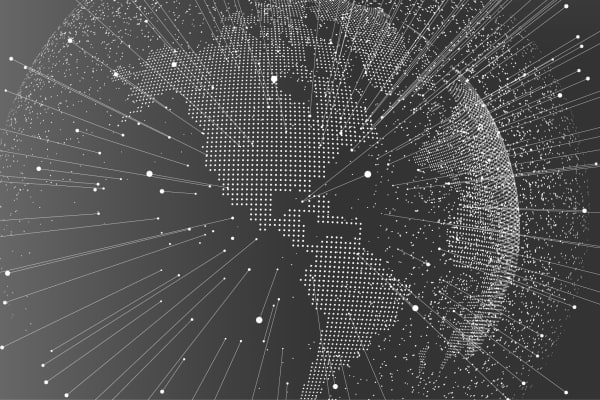For most people living in developed countries, access to essential services such as health care and public transportation, or simply the ability to use the internet, is taken for granted.
In many poorer countries in the world that's not the case, and innovative start-ups are stepping in to offer solutions.
Investing in grassroots start-ups that aim to level the playing field while providing a healthy financial return is one way that investors can play a role in reducing inequalities.
For Shaffi Mather, founder of start-up MUrgency, an Uber-style mobile application that connects people who need an emergency response with medical and rescue professionals, the story is personal.
"Twelve years ago my mother choked in her sleep," he remembers. "My father and I had to rush her to the hospital in the back of our car. Fortunately, she survived, but during this period I asked myself 'Why are there are no emergency services?' India has ambulances, but these vehicles are not equipped with life support services, and they're not professionally managed."
Determined to change the situation, Mather started the company in 2003 with one ambulance in Mumbai. MUrgency now has 1,600 ambulances and 6,000 employees, helping between 5,000 to 10,000 patients every day and plans to go global.
MUrgency has raised funding from Axilor Ventures and seed investors including some of India's most prominent business people.
Asked whether governments shouldn't be providing the emergency response, Mather is clear. "Governments have failed in this space," he says. "That's why we are finding this opportunity."
FreeCom, a free communication tool that helps people stay in touch when there is no internet or mobile signal, is another example of an innovative start-up.
Syrian software engineer Abdul Rahman Alashraf came up with the idea after seeing his friends and family in Syria unable to call each other or text after a bomb went off.
The FreeCom technology allows smart devices to piggyback on multiple channels and lets users create their own network by connecting to each other to make the internet work offline.
The 27-year-old, who now lives in Germany, says his research showed that 60 percent of the world's population doesn't have proper internet access. He hopes to expand the reach of FreeCom to meet this need.
Over the past 20 years, extreme poverty globally has been cut by half yet the divide between developed and emerging economies has increased.
Meanwhile within richer countries like the U.S., and even traditionally more egalitarian countries like Sweden and Denmark, the gap between rich and poor is at its highest in 30 years.
There are warnings that inequality is only set to increase with the arrival of what is being called the fourth industrial revolution — where computers and robots replace skilled workers.
In a report by UBS the financial services company warns that poorer sections of society stand to lose more and advises it is "an economy's ability to adapt to the changes associated with new technology that matters."
This rise in inequality is something the business world should be concerned about, says Sergio Ermotti, group chief executive officer at UBS.
"The recent rise in inequality has prompted a surge in populism, and heightened the risk that 'protest politics' might impair economies' long-term growth potential," he explains, adding "that matters because growth is what solves most of the big economic and social problems: poverty, government deficits, quality of life, rising health care and retirement costs."
Ermotti believes philanthropic funding by investors can "play a vital role in testing and stimulating innovation that, when proved, business and government can implement at scale."
The value of investments can go down as well as up. Your capital and income is at risk. ©UBS 2018. All rights reserved. UBS Financial Services Inc. is a subsidiary of UBS AG. Member FINRA/SIPC
CNBC Catalyst is a commercial advertising department of CNBC International. For more information about CNBC Catalyst please click here.



